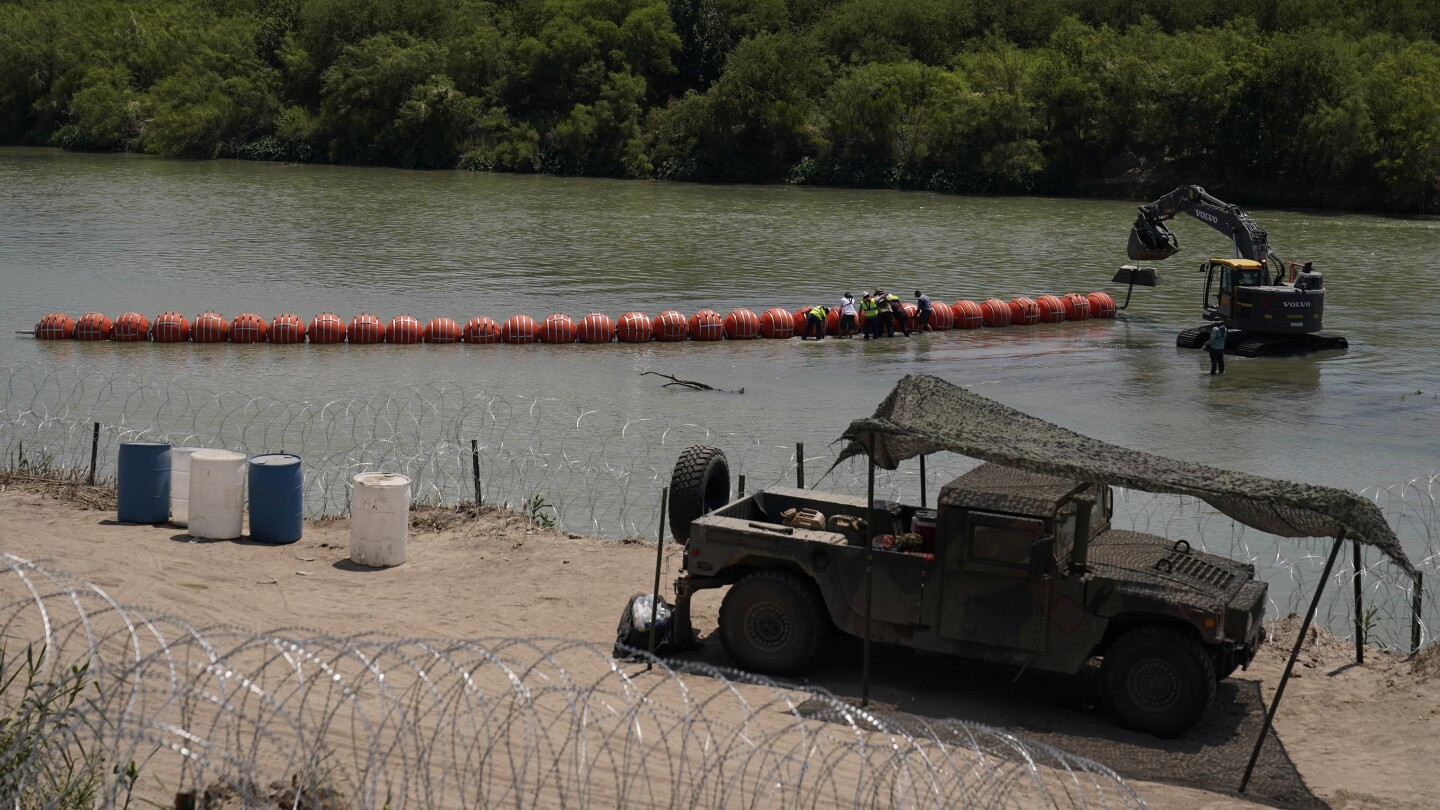AUSTIN, Texas (AP) — The Justice Department on Monday sued Texas Gov. Greg Abbott over a newly installed floating barrier on the Rio Grande that is the Republican’s latest aggressive tactic to try to stop migrants from crossing into the U.S. from Mexico.
There’s so many legal issues with the manner by which the Governor implemented this program, this case is just going to become a black hole for Texas tavpayers.
One, Federal navigational servitude. The Rio Grande river falls into Article I, Section 8, Clause 3 of the Constitution. Furthermore, United States v. Rands 389 US 121 establishes that no State can act by itself on waters used for commercial purposes. So, the emergency order by the Governor cannot just unilaterally lay claim to the river in a manner that allows them to erect these structures without consent from Congress.
Two, you can secure a border by deterrence. You cannot secure a border by murder. That flies in the face of so many international treaties and just up right violates due process in the 14th Amendment Section 1. A common refrain that some tend to spout is securing a house. Yes, you can secure your house with your gun, but what you cannot do is rig your gun to go off whenever a door is opened. That’s a booby trap and it’s illegal in every State. So a court is going to have to look at these buoys and decide if razor wired topped, net entrapping, buoys that rotate you underwater constitutes a trap.
And no, it isn’t “they made choices”. Deterrence is the upper bounds a nation can do to prevent someone entering a country. When they enter you can arrest. But at no point is killing someone before they enter your country legal in any sense. Even if they make the choice to enter the river. It would be one thing for someone to die of thirst because they cannot get over a wall. It’s an entirely different legal domain if the wall has a sensor that causes it to fall over and crush someone getting too close to it.
Again, a judge has to draw the lines on these things, but considering that the US is filing in Austin, I think they’re going to have a fighting chance to convince the judges of the dangers the barrier presents.
Three, the whole wildlife thing. Congress has granted a lot of broad authority for the President to manage wildlife. Now, this is one of those that’ll be really scrutinized by the court. But it does mean that there’s got to be a State’s interest in overriding the Federal government on this point. If the US Government can show that numbers of crossing are indeed going down, that’ll hurt Texas’ claim to have some interest in protecting their population in this extreme manner (not the buoys but the emergency declaration which authorizes the buoys).
The navigable waters point is one that courts can come down hard on, especially considering the river we’re talking about. Texas is going to have to go out of its way to really show it’s point on this one. Judges of both flavors aren’t really cool with industry being hurt by political stunts. The point about killing people will come down to safety studies and if one was conducted, how it was conducted, and so on. I’m just having a hard time thinking that some safety engineer green lit razor wire on top of floating rotating barrels with an entrapment net underneath. No part of how these are being used sounds like safety was remotely considered, and yeah, we have to consider the safety of illegal immigrants, that that whole “due process” thing we created in the 14th amendment.
nor shall any State deprive any person of life, liberty, or property, without due process of law
And it says “any person” not “citizen”. That’s because when the 14th amendment was written slaves were largely not considered citizens so the amendment needed to include literally any human being the government interacts with. And thus, that means it applies to literally ANY HUMAN BEING, including the ones crossing the border illegally. They are granted a right to due process under the law and a right to protection of life, which means that safety has to be considered in the construction of this barrier of theirs.
And the thing is courts do attempt to do the action of minimal effect, if the barrier can be made safe, that’s likely where the courts will go. But if making them “safe” renders them useless, then the court usually will fall back to status quo. Which that’s brings us to the whole emergency order that authorized them. A return to status quo would rescind the emergency order and thus make the barriers no longer a Texas thing, but trash that the Federal government would have the right to clean up. Since there’s nothing legally authorizing their existence.
It’s odd Texas picks this hill to burn so much of its tax payers’ money on, but I guess this is the fight they want.
Thank you for your analysis on all these aspects!




